Meet Lauren Choi, the visionary founder of The New Norm, a company that is reshaping the future of plastics by transforming them into wearable fabric and yarn. As a materials engineering student at Johns Hopkins University, Lauren identified the problems with current recycling processes in the United States and envisioned a future for plastics beyond traditional recycling and landfill solutions.
Lauren’s leadership and entrepreneurship go hand in hand with her relentless determination to overcome challenges. From her college campus, she collected party cups — an unconventional source of raw material — and transformed them into yarn using an extruder machine she’d built in her garage. Her unique ability to approach problems with a sense of curiosity and creativity forms the foundation of The New Norm, whose mission extends beyond the college campus and is on its way toward a more sustainable future for the world.
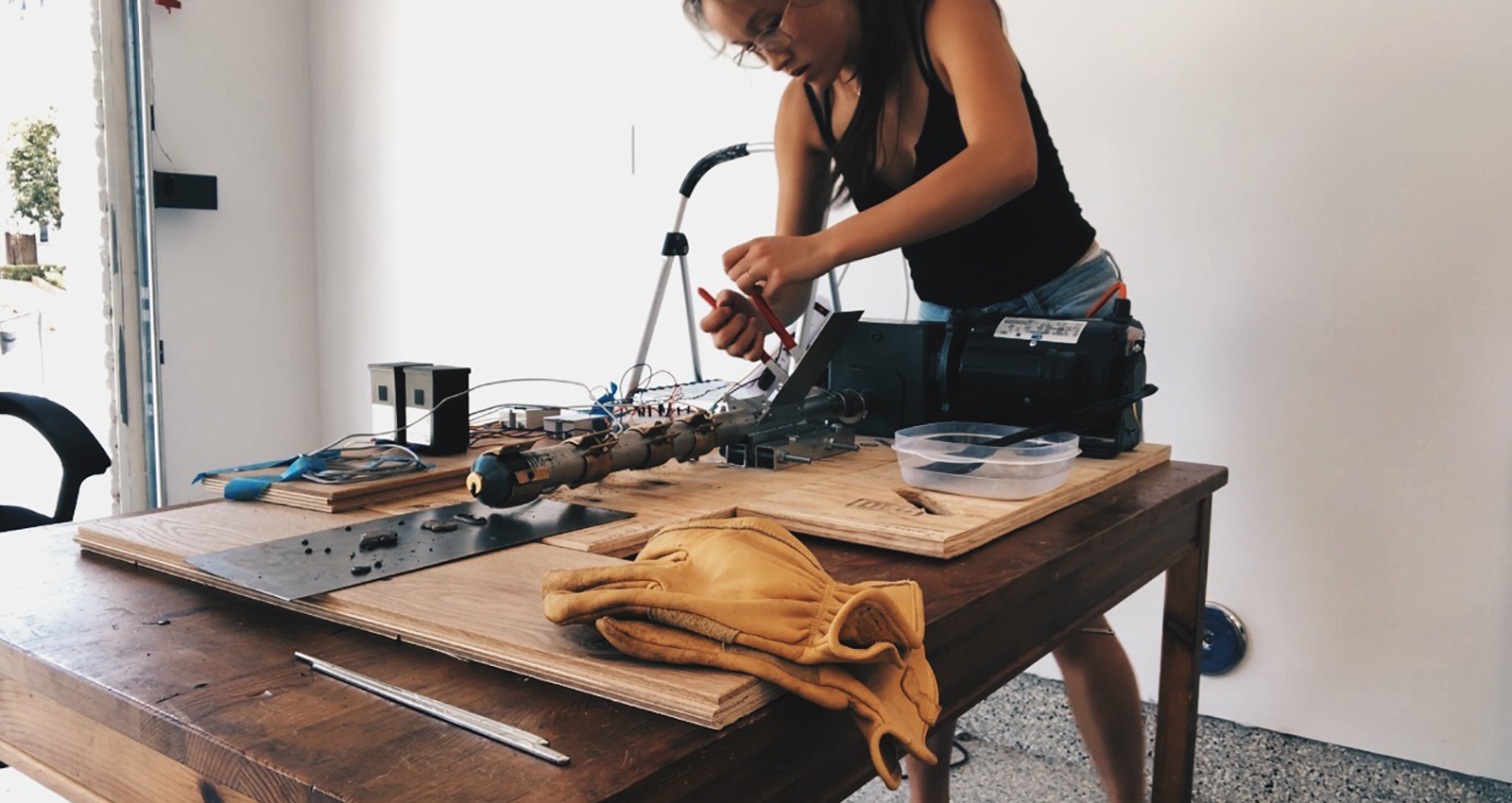
I learned about The New Norm through TikTok. How do you see social media’s role when it comes to sustainability and environmental activism?
I think social media can be really helpful. We use it as a tool to show our technology, explain our process, and show behind-the-scenes clips. When it comes to sustainability in fashion, there has been a lot of greenwashing, and customers (and brands) are often disconnected from the material innovation happening in their supply chain. Our goal is to use social media as a way to connect the different parts of our process and be pretty transparent with our viewers. That way, we hope to spread awareness on the topics of plastic recycling, sustainable fabric production, and the circular economy.
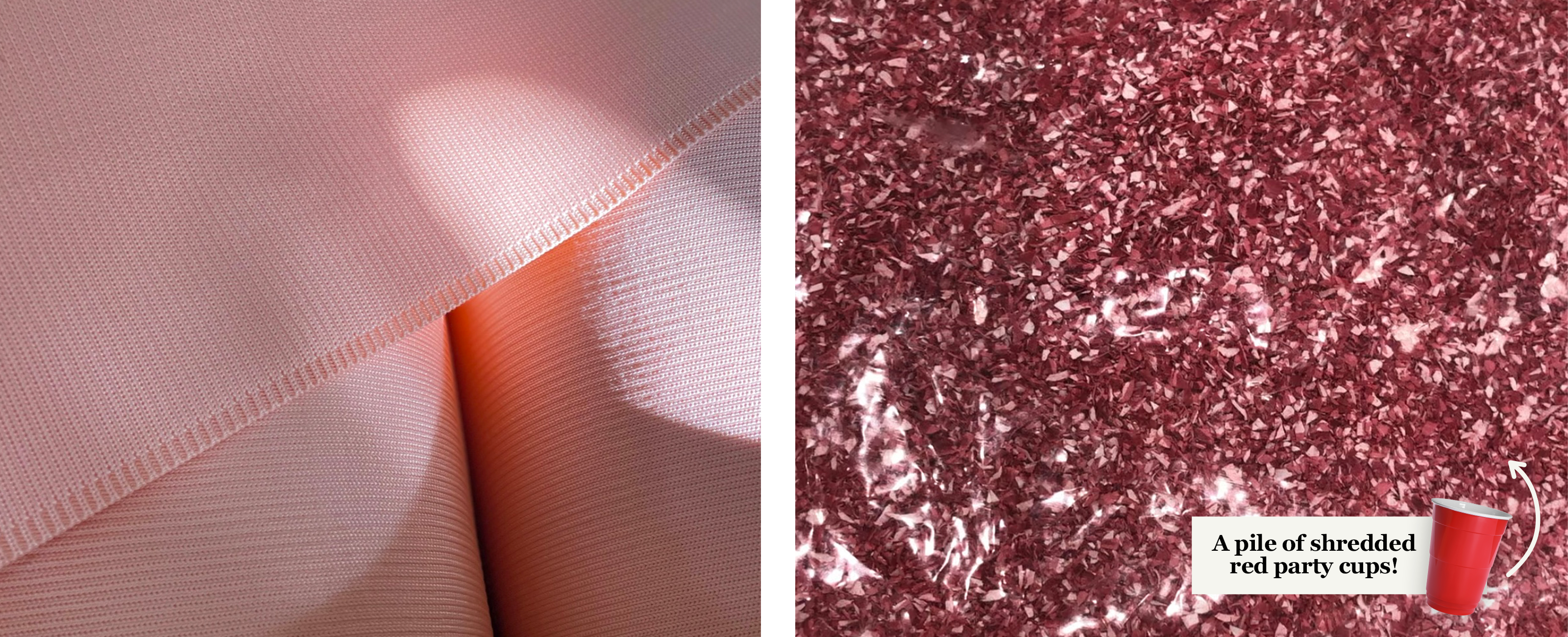
You’ve described facing many obstacles in the forms of “grey puddles of plastic goop” while building the prototype of your extruder machine — a machine that recycles plastic into yarn. How did you persevere through these setbacks, and how did this shape your creative process?
There are always problems and setbacks. I often say that my main role as a founder is problem-solving. It requires diligence, often thinking outside the box, and curiosity. My background is in materials engineering, and I’ve always found the creative design process, tinkering, and testing out new ideas to be exciting. When I hit a problem, I just try something new. I believe that the “Just do it” mentality has helped me not get stuck on one thing for too long.
I also find it incredibly important to take inspiration and lessons learned from all parts of life and apply them to my work. When I was a materials engineering student, unlike my peers, I spent my summers working at a swimwear company. Although a little unusual for an engineering student, without that experience, there is no way I could have founded The New Norm and understood an apparel brand’s needs.
I also spent a year in biotech at Amgen and got to see pilot production in a totally different industry. Having a wide range of experiences has allowed me to tackle problems in maybe unconventional, more holistic ways.
Being a young entrepreneur gives me a lot of freedom to move fast, design something new, and be nimble.
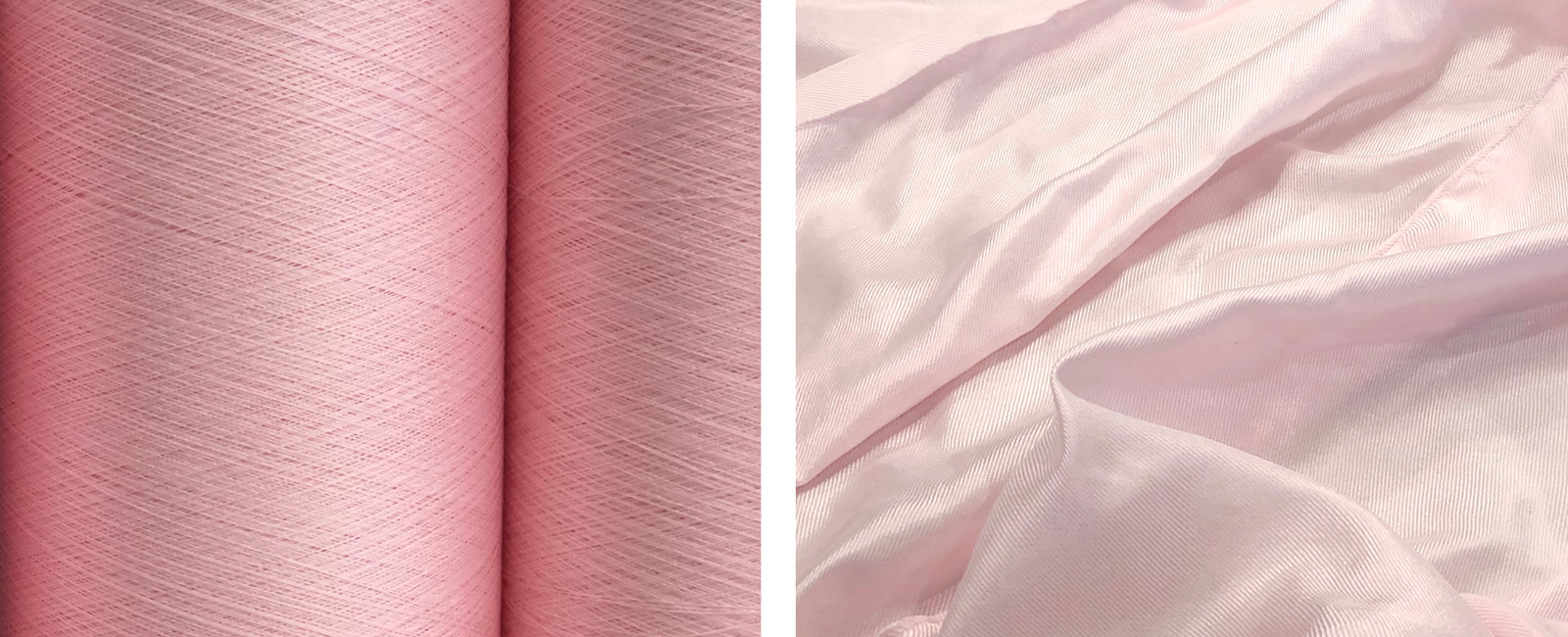
The first successful run of your extruder machine was the result of an unexpected input — party cups collected from your college campus. What have you learned while building The New Norm that you didn’t expect when you first started?
There are so many lessons learned. This is a short list.
1. Running a start-up is not nearly as glamorous as people may think. It requires a lot of hard work, perseverance, and hope. Things take time — a lot more time than I could have imagined — and success is never overnight. Each year, we’ve worked hard to hit significant milestones and have continued on this journey. The belief in our larger mission is what has kept me going, and it’s been very rewarding.
2. Asking questions and being curious has led me to the right people. I’ve met amazing mentors who share their life stories, hardships, and learnings. It’s almost impossible to go at something alone. I’m so grateful to the people I have met along the way.
3. College students use a lot of party cups. We probably knew that already, but to prove it, we launched a pilot collection program on the Johns Hopkins campus during my senior year (right before the pandemic). We onboarded six student clubs and were collecting 5,000-plus cups a month. Johns Hopkins has an undergraduate population of around 6,000. We got immense support from the student community, and it’s been inspiring to see how excited people are about recycling and sustainability.
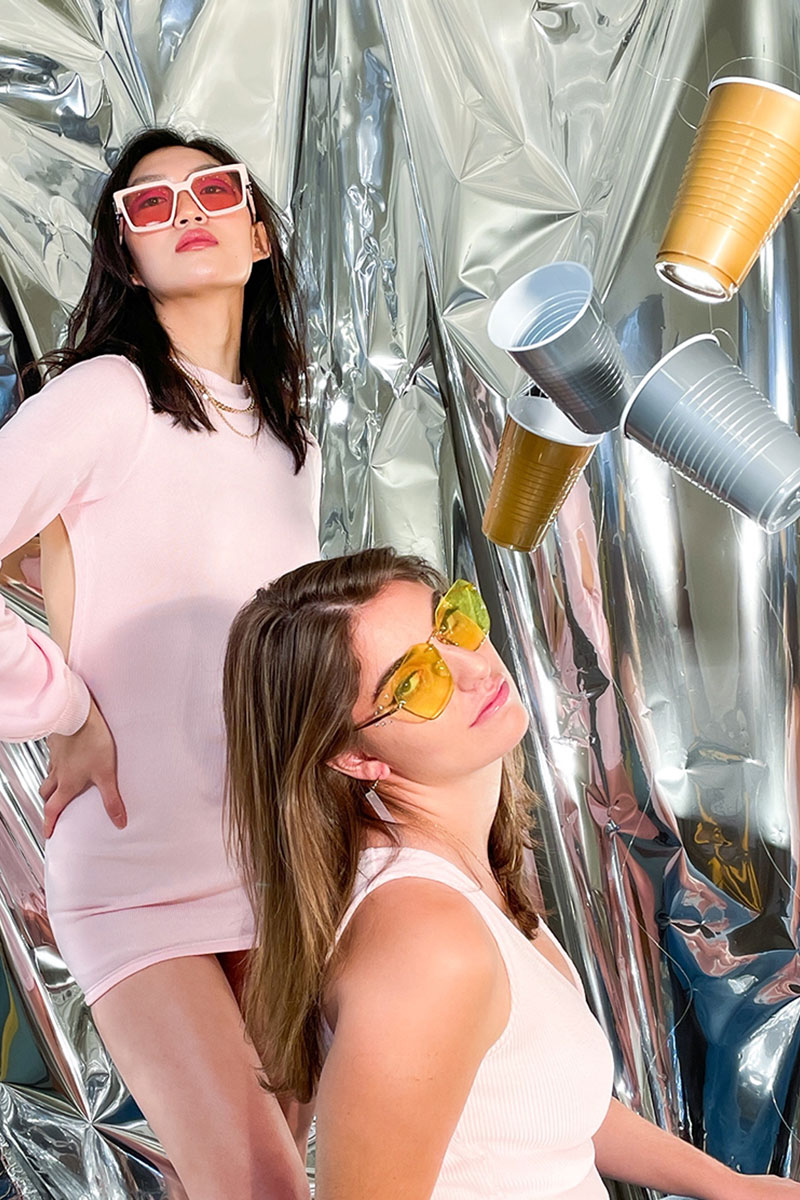
The New Norm transforms plastic into style one party cup at a time; photography by Pedestal.
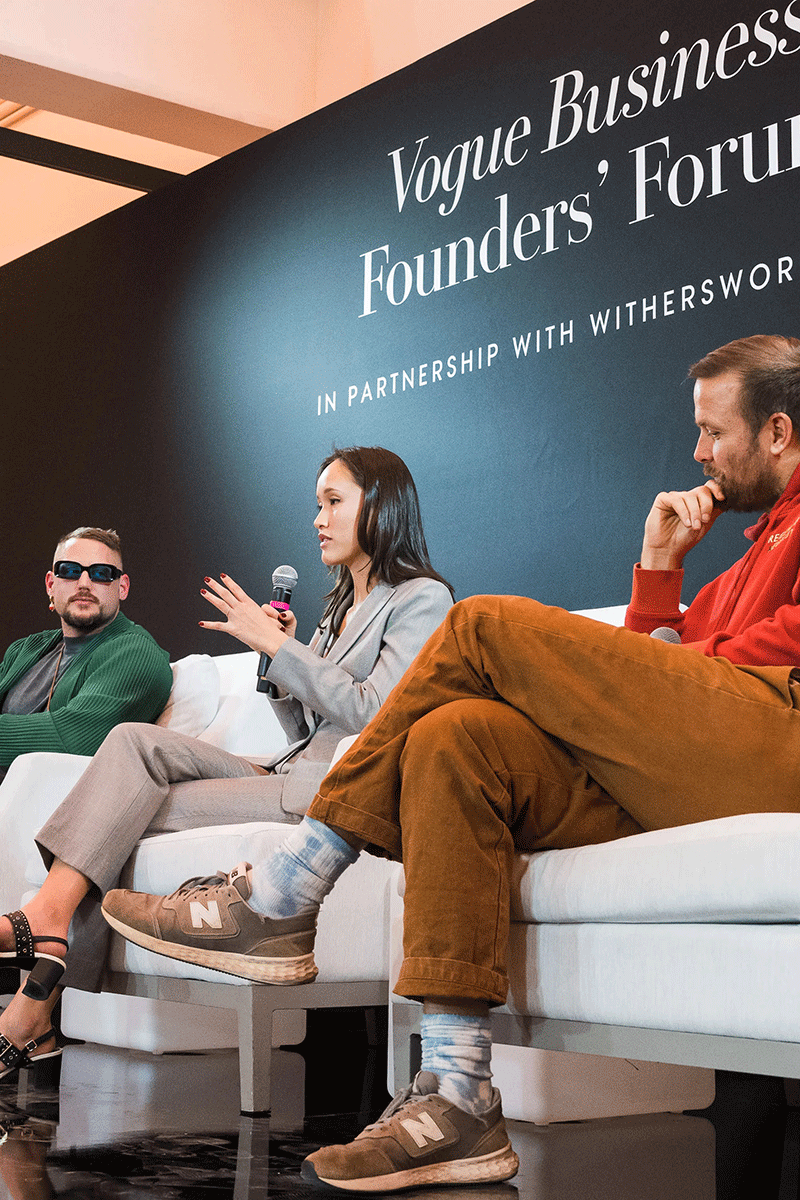
Lauren speaking at the 2023 Vogue Business Founders’ Forum; photography by David Jon.
How has tackling environmental issues as a young entrepreneur shaped you as a leader?
I do believe being a young entrepreneur gives me a lot of freedom to move fast, design something new, and be nimble. It’s given me the freedom to design a product, technology, process, and supply chain that meet my definition of sustainability. I have chosen to support local manufacturers, keep our products fully made in the U.S., and have eliminated the use of any chemicals, dyes, and water in our process.
Larger companies are often stuck trying to work backward and integrate sustainability into their products and supply chain. However, when I graduated from college, I quickly realized how difficult it is to scale a technology — larger companies have the ability to make large-scale change.
In order to solve global challenges like climate change and develop a circular economy, it will require collaboration from both ends of the spectrum. These are exciting times, where the big players are looking to younger entrepreneurs for new solutions.
It sometimes feels like one person can’t make a significant difference. However, working on The New Norm, I find myself feeling like I’m part of a greater team.
What advice do you have for others who want to make a positive impact but may feel overwhelmed when it comes to addressing global challenges like climate change?
Addressing challenges like climate change is overwhelming. These are global issues caused by numerous interconnected industries. The problems are ingrained in decades-old systems and have an impact on all parts of our environment. It sometimes feels like one person can’t make a significant difference. However, working on The New Norm, I find myself feeling like I’m part of a greater team.
In meeting other founders, engineers, designers, etc., at small and big companies, it makes me hopeful that we are all tackling our own parts of this greater problem. I’d say to anyone thinking about making a positive impact that you’re not alone — you’re just joining the team. We are living in a time when drastic, innovative measures must be taken to reverse the damage we have done to our planet. The New Norm was founded with this understanding and a great sense of urgency. This is my personal promise to better our environment and pursue sustainability through tangible implementation.

